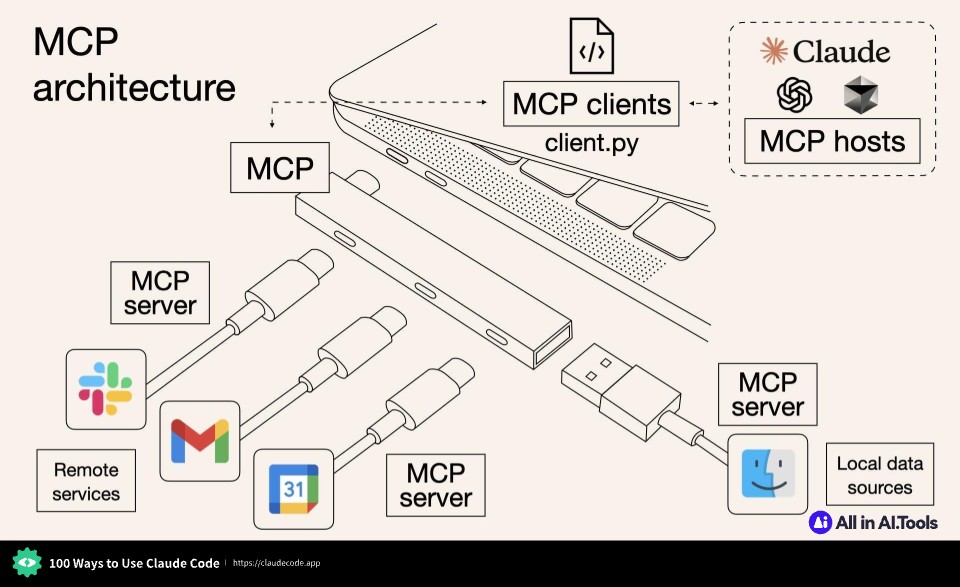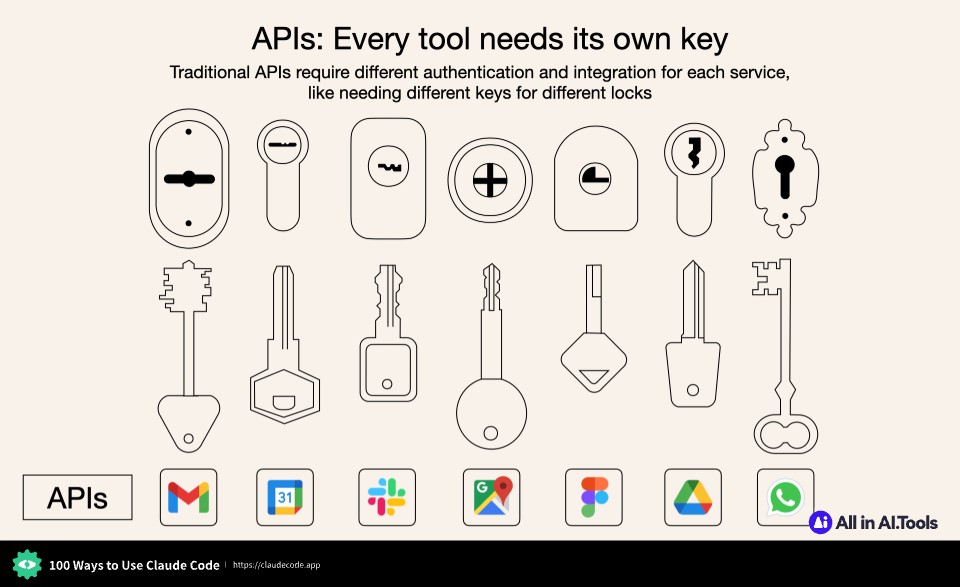Discover and integrate MCP servers to extend Claude's capabilities
Revit MCP. A Model Context Protocol server for Revit integration, enabling seamless communication between Claude AI and Autodesk Revit.
A powerful Model Context Protocol server for LinkedIn interactions that enables AI assistants to search for jobs, generate resumes and cover letters, and manage job applications programmatically.
A Model Context Protocol (MCP) server that connects to Strava API, providing tools to access Strava data through LLMs
A simple MCP ODBC server using FastAPI, ODBC and PyODBC.
A powerful Model Context Protocol (MCP) server that revolutionizes NPM package analysis through AI.
An extensible TypeScript toolkit that simplifies complex EVM blockchain interactions into composable, intent-based tools. Provides a unified, type-safe interface for both on-chain actions and off-chain data services, enabling developers to programmatically execute any blockchain operation across multiple EVM networks.
MCP for Video- or Image-Generation with Google VEO2
A Model Control Protocol (MCP) server that allows cross-checking responses from multiple LLM providers simultaneously
react-mcp integrates with Claude Desktop, enabling the creation and modification of React apps based on user prompts
Dify 1.0 Plugin Convert your Dify tools's API to MCP compatible API
MCP server that enables Roo Code to make OpenAI API calls, with full support for DALL-E image generation
Antrophics Model context protocol to edit powerpoint files
An MCP server that provides current and historical gold/precious metal prices via the GoldAPI.io service.
making playlists got fun and easier wohoo. chat with claude and build personalized playlists. a spotify mcp server
An MCP service for getting user geolocation information
Tools for seamless integration of different systems and services.
Cloud infrastructure and deployment management tools.
AI-powered tools for creative design workflows across 3D and 2D mediums.
AI-powered tools for product development, design review, and performance monitoring.
Tools for monitoring, analytics, and operational efficiency.


Explore Claude Cowork, Anthropic's groundbreaking AI agent built on Claude Code foundations. Discover how it enables file access, document creation, and task automation for everyone—not just developers. Learn how it integrates with MCP servers and extends Claude Code capabilities.
Explore the major [Claude code](https://claudecode.app) 2.1.1 update featuring 109 CLI improvements, automatic hot reload for skills, sub-agent execution, enhanced security, performance optimizations, and smarter prompt behavior. Learn about all the new features and improvements.
Master the art of prompting Claude with Anthropic official guide. Learn 10 proven strategies to 10x your Claude Opus and Sonnet 4.5 performance. Discover how better prompts lead to better results with practical examples and real-world applications.
Deep dive into sophisticated SSH workflows for Claude Code power users. Learn zero-friction authentication, session management, and advanced techniques that transform your vibe coding experience.
MCP (Model Context Protocol) is an open protocol that standardizes how applications provide context to LLMs. Think of MCP like a USB-C port for AI applications, providing a standardized way to connect AI models to different data sources and tools.
MCP Servers are lightweight programs that expose specific capabilities through the standardized Model Context Protocol. They act as bridges between LLMs like Claude and various data sources or services, allowing secure access to files, databases, APIs, and other resources.
MCP Servers follow a client-server architecture where a host application (like Claude Desktop) connects to multiple servers. Each server provides specific functionality through standardized endpoints and protocols, enabling Claude to access data and perform actions through the standardized protocol.
Yes, MCP Servers are designed with security in mind. They run locally with explicit configuration and permissions, require user approval for actions, and include built-in security features to prevent unauthorized access and ensure data privacy.